Sir, it is under Rule 239. The hon. Minister is misleading the House. .. As far as West Bengal is concerned, the land procurement…
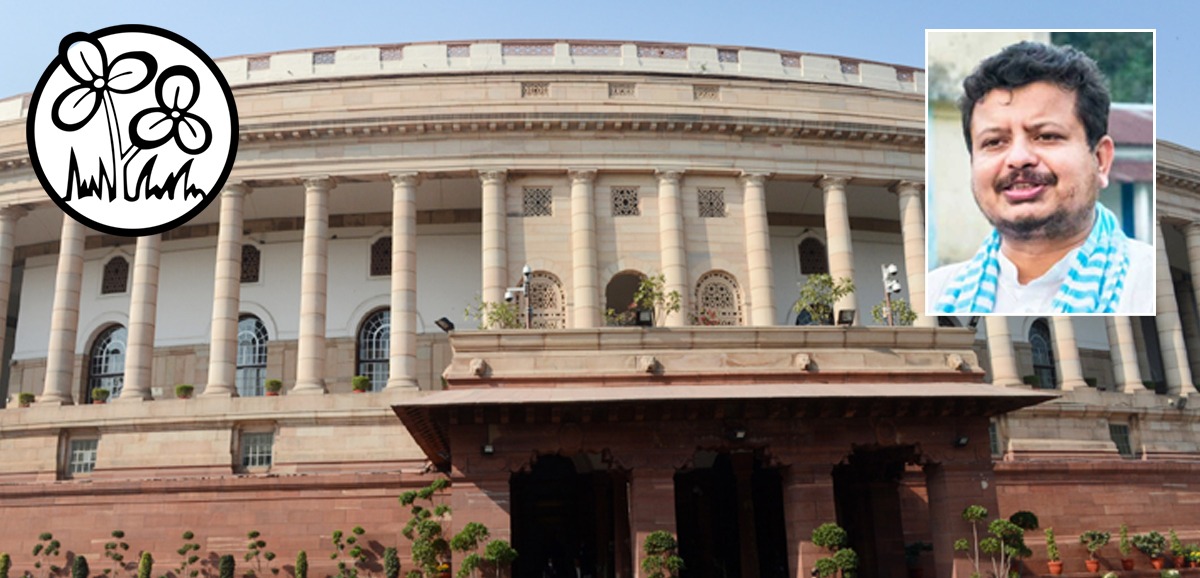

Sir, it is under Rule 239. The hon. Minister is misleading the House. .. As far as West Bengal is concerned, the land procurement…
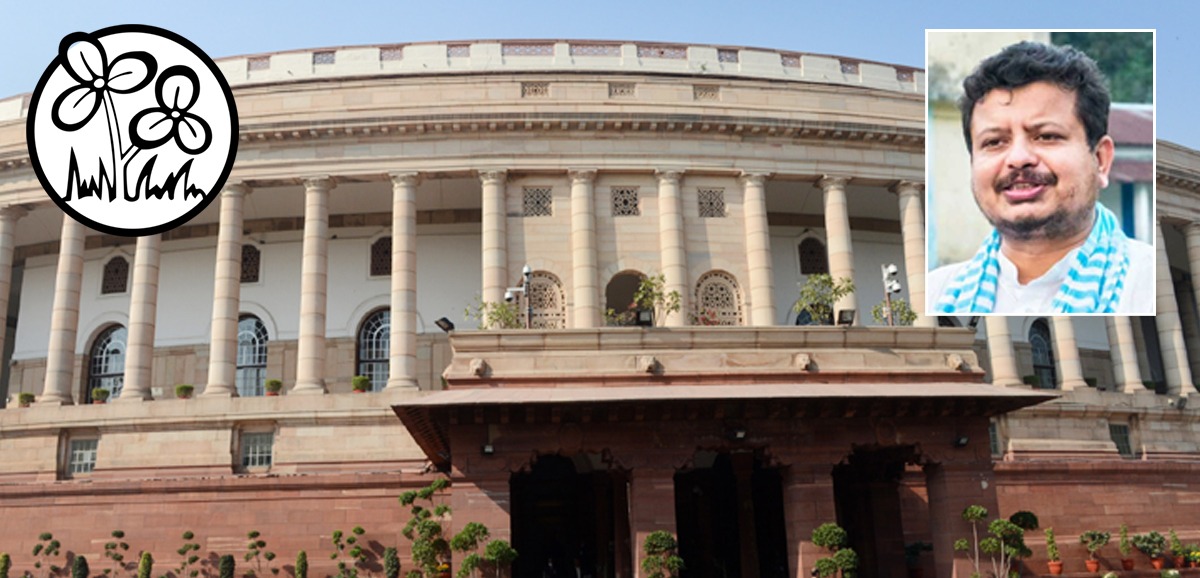
Sir, speaking on behalf of the All Indian Trinamool Congress on the Immigration and Foreigners Bill, 2025, the first that I would like to state is that this Bill requires elaborate parliamentary deliberations and without such detailed deliberations, it would not be prudent for the Bill to be passed. Sir, in the Immigration and Foreigners Bill that is being deliberated upon today, we can see a trend of excessive centralisation of power and the purpose behind this is to single out critics of all sorts. We believe that this Bill could be misused fortargeting critics. Also, the question of violation of international human rights also arises here. There is also a need for discussion as to how this Bill would determine the subtle difference between an intruder and a refugee who is seeking refuge fearing for his life and for whom returning back possess a significant threat to his life. Questions have also arisen as to how this Bill would harmonize with the provisions contained in the Refugee Convention of the United Nations as it concerns the rights of those refugees, who faces the threats of being attacked upon, whose lives would be at risk if they are forced to return back. Further concerns have arisen as we have seen in the last couple of years multiple incidents of cancellations of visas. Whose visas are being cancelled? Of those who are criticising the Government. Visas are being cancelled for OCI card holders. The visas and OCI cards have been turned into a political weapon against the critics. These are not being cancelled on some legal grounds. These are being cancelled owing to the Government’s apathy to any kind of criticism. The critics would not be allowed to enter. It can also be seen that different foreign journalists who otherwise have problems with the Central Government, their visas too are being cancelled. Now, I would like to ask the Government through you that supposing in Bangladesh, a student studying in the Dhaka university while sitting at the Madhur’s canteen decides that he wants to come to India to do his research on the ‘Kanyashree’ scheme introduced by Ms. Mamata Banerjee, while the United Nations too has recognised this scheme and has termed it as a model for the world. Mrs. Sagarika Ghosh, the Deputy Leader of our party in the Rajya Sabha who is sitting here, many got irked as soon as she mentioned the name of Pandit Nehru yesterday. Now, I would like to state that there is a famous picture where Pandit Nehru could be seen sitting at the feet of Gurudev Rabindranath Tagore. Now, I want to state that I am a son of a refugee family. I am a third generation refugee. I am the proud son of a refugee family. I am a third generation refugee. I consider my refugee ancestors as one of the greatest badges of my honour. To give uniformity to the jurisdiction across the States, you cannot straight-jacket this country. This transnational migration, people have been forced to migrate. The year 1947 witnessed that largest migration in the world. If someone wants to come to do research on the matter, a question is coming up as to whether that person would be granted a student visa. What is more important is that, suppose, like I was saying that Pandit Nehru, the reason for which the issue of Pandit Nehru came up, I would like to say in this regard, especially we are witnessing that this Bill which the Government wants to pass bypassing any parliamentary deliberations. We have seen that it is being discussed inside the parliament that 24 parganas districts of West Bengal, there are two 24 parganas – North 24 parganas and South 24 parganas, it is being insinuated that incursions are happening from those districts and the intruders are obtaining Aadhar and Voter ID card from there. Now, I was not aware, Sir, that Aadhar comes under the control of Ms. Mamata Banerjee. I was completely unaware about it. UIDAI authority, a statutory authority, regulates Aadhar. It is unfathomable as to how West Bengal comes into the scene. Election Commission is an autonomous, constitutional body. This EPIC and Voter ID card issue pertaining to this autonomous and constitutional body, which has now become a contentious one, our leader and hon. Chief Minister of West Bengal Ms. Mamata Bandyopadhyay, on the 27th February had raised the matter in Kolkata. The issue of duplicate EPIC cards meant for doing fraudulent activities in elections has now come to the fore in front of the nation. Many names from the States of Gujarat and Haryana have been included in the EPIC card numbers for West Bengal. Will these people from Gujarat and Haryana come to West Bengal with their Bengal voter cards to cast their vote? We categorically state that it is the responsibility of the Election Commission of India to conduct free and fair elections. What has happened in Maharashtra and Delhi won’t be repeated in West Bengal as Mamata Bandyopadhyay is our leader’s name, Abhishek Bandyopadhyay is our leader’s name. We won’t let this happen in Bengal. I would like to state here that the hon. Chief Minister of West Bengal has mentioned that the Association of Billion Minds, whose name has now been altered to Nation with NaMo, this organization is sending people over to West Bengal through another such group which is India 360’s subsidiary. They are eyeing to control the electoral outcome in West Bengal by pushing in outsiders. This will not be allowed to happen. You will not succeed in this effort. We want to mention here that West Bengal is having the longest international border. It shares border with three neighbouring countries. In 2021, all of a sudden, the area of operation of BSF was increased to 50 kilometre inside our border compared to the earlier limit of 15 kilometre to our surprise. The rationale given for such a step was to give uniformity in jurisdiction across the States. You cannot straight jacket this country. Unity in diversity – different languages, different attires, different food habits, “Different languages, different opinions, different attires, Yet amidst this diversity, behold the great unity”- this is our tradition. You cannot straight jacket although you may try to do so. You will never able to impose one nation, one vote, one language and one leader on us. Recall that Pandit Nehru was sitting at the feet of Gurudev Rabindranath Tagore, who was mentioning to him about the ‘Indian pilgrimage’. ‘Indian pilgrimage’ is a famous poem which I would not recite in its entirety. Gurudev Tagore had shown the way to Pandit Nehru, the then future Prime Minister of this country. “Singing victory songs with the fervor of battle cries, Piercing through desert paths and mountain ranges, Those who came, all of them, Reside within me, none are far away, In my blood echoes the varied tunes of their voices.” “Here, one day, in ceaseless rhythm, A great Omkar resounded. In the heart’s chords, with the mantra of One, A war cry arose, unbounded. Through penance’s fire, in the One’s pyre, The many were sacrificed whole. Division faded, awakening created A vast and unified soul.” “Will the unbearable pain ever end, Giving birth to a mighty soul? The night fades, the mother awakens In her vast nest, On the ocean shores of India’s great being.” Lastly, I would like to state that pluralism and federal structure are our strength. The State of West Bengal was not consulted while drafting this Bill. A minimum respect should to be accorded to pluralism and federal structure. Let this Bill be sent to a select committee for a detailed deliberation. “In the rhythm of Odissi, in the gestures of Bharatanatyam, In the beats of the Santhali drum and the fervor of Bhangra, The night of a grand festival will awaken. On that night, On that starry, bursting Mehfil of a night, Do not forget me— The one with torn hands, an empty stomach, an uprooted heart, With drops of tears, blood, and sweat, Miles and miles of sorrow and love— A name whispered in pain and pride: Motherland, Freedom, India.” Thank You Sir. Jai Hind! Jai Bangla!”
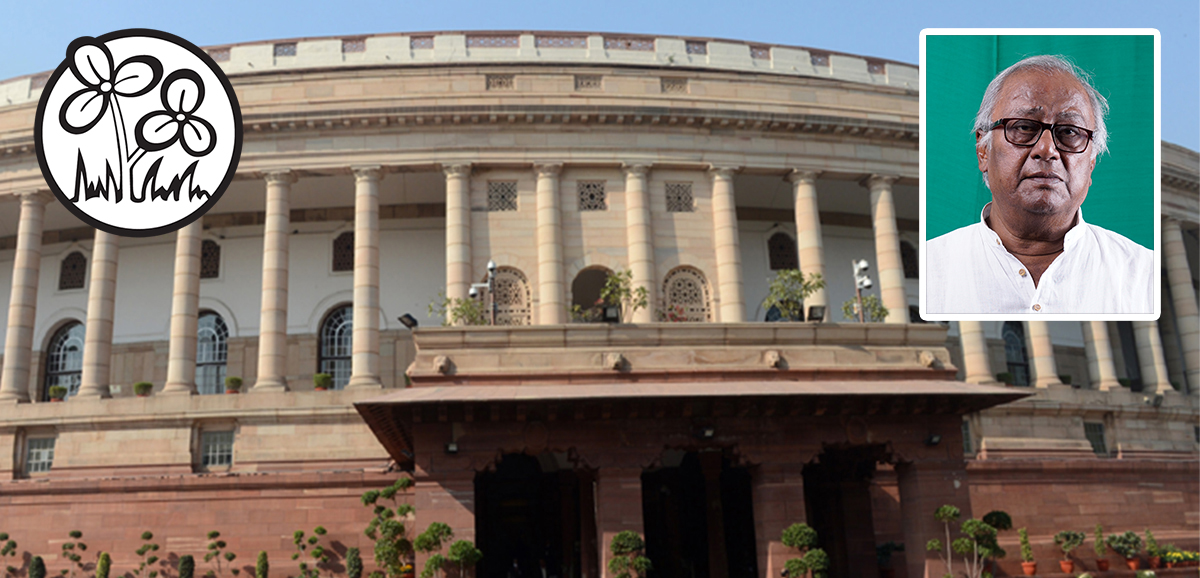
Under Rule 77(2) of the Rules of Procedure, I propose that the Waqf (Amendment) Bill, 2025 be re-committed for the purpose of eliciting further opinion thereon. 02-04-2025 RJN Uncorrected / Not for publication 305 I beg to move: “Thatि theि Billि beि circulatedि forि theि purposeि ofि elicitingि opinionि thereon by the 21st July,ि2025.”
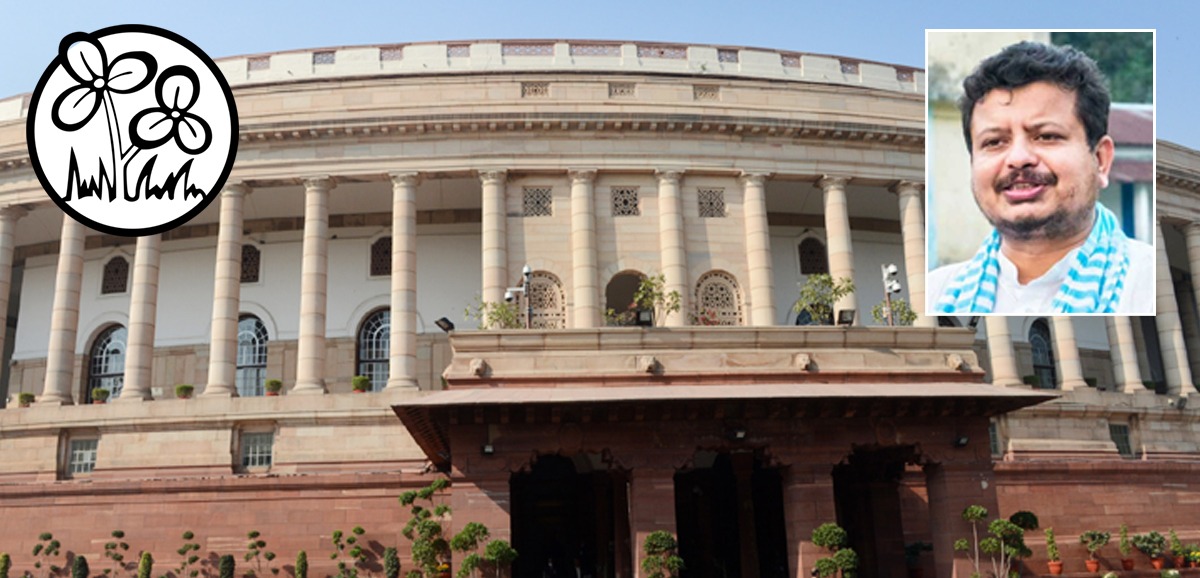
Sir, the Employees Provident Funds and Miscellaneous Provisions Act, 1952, is one of the most important social security schemes for the benefit of the working people of our country. This Act provides for the institution of provident funds, pension funds and deposit-linked insurance funds for employees in factories and other establishments. Provident Fund is a Central Government-managed retirement savings scheme where both employees and employers contribute a portion of the employee’s salary to create a fund for retirement or emergencies, managed by organisations like the Employees Provident Fund Organisation. Sir, unfortunately enough, defaults under the EPFO has reached a record high of almost Rs. 26,000 crore at the end of 2023-24, marking an increase of 69.3 per cent from Rs. 15,254 crore the previous year, according to official data. The private sector’s default on provident fund deposits with EPFO has been constantly on the rise in the last five years in an alarming rate. In the private sector particularly, a large number of employers not only are not depositing their contributions but are also not depositing the contribution of the employee which the employers are deducting from salaries. This is a dangerous and alarming trend. In order to ensure stringent measures against the PF defaulters, the concerned State Government must have the concrete PF data from the PF offices which are not happening in reality. The Labour Department of the Government of West Bengal has been repeatedly requesting the Additional Central PF Commissioner, in-charge of West Bengal, Sikkim and Andaman & Nicobar Islands to share the list of defaulters of jute mills since 2024. The concerned Additional Central PF Commissioner has not bothered to give any details till date. There was a written complaint to the Labour Minister, West Bengal against a private contractor agency, working at Haldia Dock Complex, by nearly 1,000 contractual employees of Haldia port regarding huge PF default. The Labour Department has been sending formal letters to the same Additional Central PF Commissioner since August 2023 but till date no concrete reply has been received. Naturally, a suspicion of an unholy nexus between the said office and the contractor arises. The question is whether this particular office situated in DK Block, Sector II, Salt Lake, West Bengal, is trying to protect that particular PF defaulter at any cost. Similarly, since 2024, the West Bengal Labour Department has been writing to the Regional Provident Fund Commissioners of Jalpaiguri, Siliguri and Darjeeling requesting for the garden-wise PF dues under their jurisdiction. Unfortunately enough, no concrete reply has been received from them. In order to ensure stringent action against PF defaulters, through you, I would request you…
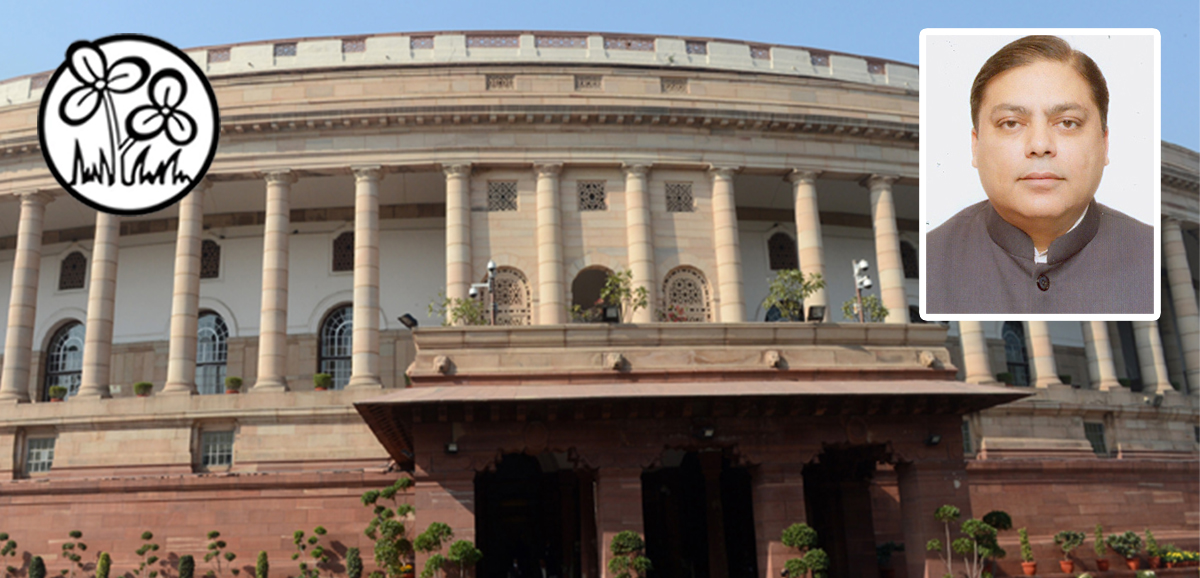
Sir, let us all welcome the safe return of Crew-9 to Earth after 286 days. They landed back on Earth on March 18th. Let me quote what the hon. C.M., Ms. Mamata Banerjee, said. I quote, “Welcome Sunita Williams and Butch Wilmore back to Earth, finally and safely after so many days. Our daughter of India returns to us and we are deeply, deeply happy and elated. We are profoundly happy for Butch Wilmore also. Hail their courage, hail their return, hail human glory! I congratulate the rescue team for their overwhelming support and success.” A few days after she made this statement, the hon. Chief Minister of West Bengal spoke at the State Assembly where she demanded that Sunita Williams should be conferred with the Bharat Ratna, India’s highest civilian award. This would be a fitting tribute to her remarkable achievement. Looking at India from space, Sunita Williams highlighted the Himalayas’ ripple effect, the fishing fleet near Mumbai and Gujarat and the network of lights visible across the country. The achievement of Sunita Williams would also make ISRO proud, which was established in 1969. Yes; Great institutions were built before 2014. The success of Sunita Williams has always been celebrated in India. Giving her Bharat Ratna would be the ultimate celebration. Sir, let me remind my fellow Parliamentarians that Sunita Williams was honoured on her visit to India in 2007. Among the many accolades she received, she was also conferred Padma Bhushan. I do recall the words of Sunita Williams, and, I quote, “There is one lady, I admire a lot.” In fact, that lady is now with us in Rajya Sabha. Sunita Williams was referring to Shrimati Sonia Gandhi. Despite all accolades showered on Sunita Williams from across the world and the UPA Government in Delhi, *. A few days ago, she has expressed her desire to visit her father’s home country and their ancestral village. She comes from Mehsana District, the same District where hon. Prime Minister, Shri Narendra Modi, hails from. Let me ask you: Now, in 2025, we demand Bharat Ratna for a super achiever with strong Indian and Gujarati roots.
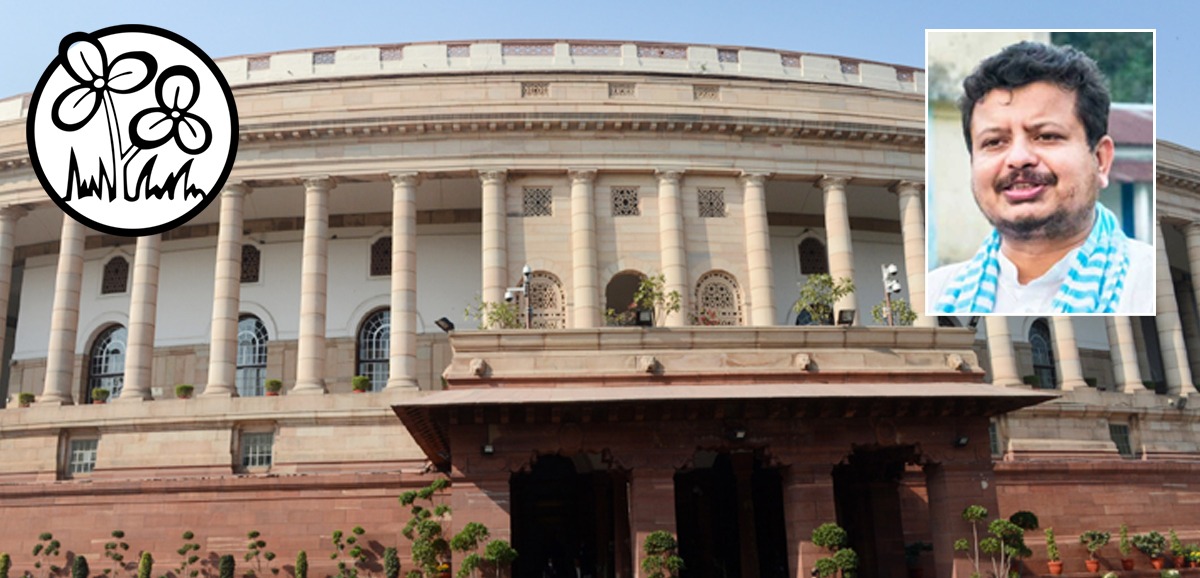
Sir, a crucial factor that determines the demand for any currency is the demand among foreigners for the goods and assets of the country. Since foreigners will first have to purchase the local currency before they can purchase goods and assets, high demand for a country’s goods and assets translates to high demand for its currency. Between January, 2023 and March, 2024, Foreign Portfolio Investors pulled out nearly 15 billion dollars from Indian equity markets, leading to a significant pressure on rupee. Sir, through you, I want to know from the Government: Can the Government provide a detailed break-up of sectorwise Foreign Portfolio Investors’ outflows and their correlation with the depreciation of our rupee? Sir, the RBI has been using its dollar reserves to prop up the value of the rupee by artificially increasing the supply of dollars in foreign exchange market. Sir, India’s Current Account Deficit, widened to 1.2 per cent of our GDP in quarter three of financial year 2024- 25. Through you, Sir, I want to know from the Government: What policy measures has the Government explored to stabilize our currency?
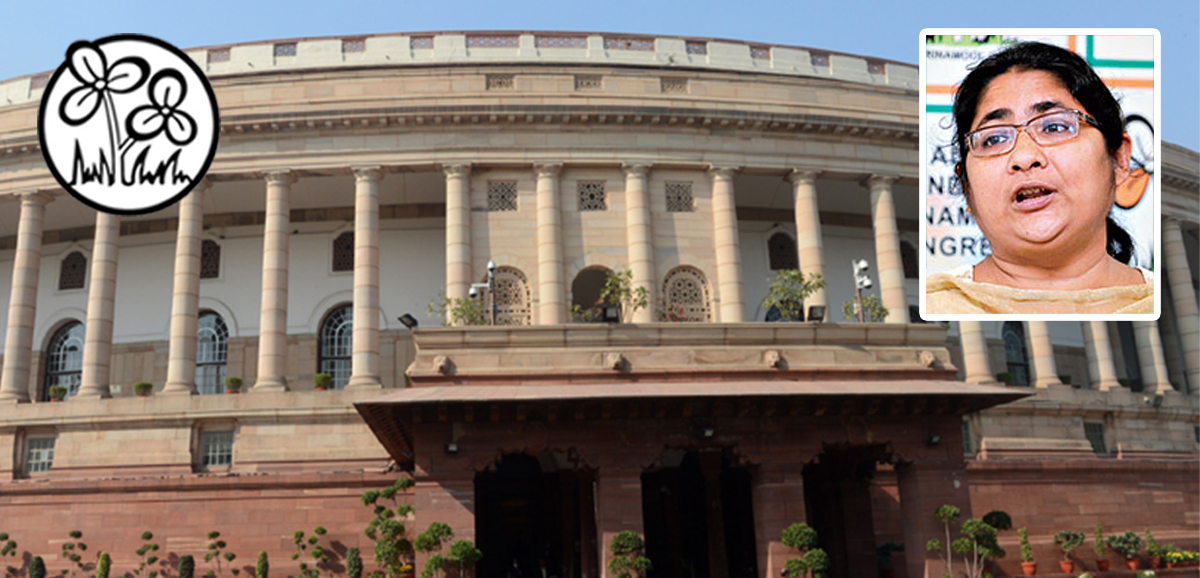
Sir, I have point of order under rule… Thank you, Sir, for appreciation. I have a point of order under Rule 267. For discussion on duplicate EPIC, four of us, on behalf of All India Trinamool Congress, had given notices under Rule 267 on last Friday. You had said that you would give your ruling. But, no ruling was given. Sir, notices under Rule 267 were not called out on Friday. So, I am humbly requesting your ruling of Friday. Thank you.

Madam, I rise to speak on the Coastal Shipping Bill, 2024, brought forward by the hon. Minister of Ports, Shipping and Waterways, Shri Sarbananda Sonowal. Coastal shipping is a huge area. It covers 7,500 kilometres of our coast. The problem with our coast is that we have a long coastline, but it is not indented. If you compare it with the Scandinavian coast, there is indentation, so that ships can go straight into the harbour. We do not have that facility, but we have to make do with what we have. Now, the main thing is that coastal shipping is cheaper. Madam, you are from Madhya Pradesh, you would not realise the problems we have in Kolkata. From Kolkata to Chennai, we can carry coal very easily. It is easier than a train or a truck. This is very prevalent. The hon. Minister wants to improve that. But, at present, waterways account for only 6.4 per cent of our transport mix. It is much lower than countries like China, Japan and the EU. The Bill seeks to increase the share to 7.5 per cent by 2030, and 12 per cent by 2047, thereby reducing congestion on roads and railways. The hon. Minister has done some work on improving inland river connectivity. Mainly, our national waterways are there like Ganga, Brahmaputra and other places. Madam, you would be surprised to know that from Kolkata port, there are ships going to Cachar. How do they go? They go down Ganges to the sea. Then from Bangladesh, they go up Brahmaputra to reach Cachar. There is a regular trip to Karimganj from Kolkata. Now, these are great advantages. There is no traffic jam on waterways and the cost is less. But there is one thing. If we improve our coastal shipping, it will enhance India’s marine competitiveness. Though 100 per cent FDI is allowed in the shipping sector, complex regulations have hindered foreign investment so far. We must not allow regulations tohamper investment. This Bill introduces uniformity and transparency, encouraging more ships to register in India and boosting maritime trade. Madam, you possibly know that there are mechanized vessels and non-mechanized vessels. For instance, if you take a huge barge going by the Ganges or going into Bangladesh, it is a non-mechanized vessel. If you look at the huge oil platforms through which we raise oil from Bombay high, they are also non-mechanized. The mechanised vessels are those which use an engine. The engine may be a petrol engine. But it is better to have a CNG engine. That will improve our marine competitiveness. This is one suggestion that we have. We should have a provision in Clause 3 requiring at least 50 per cent of India’s domestic cargo to be transported by Indian-flagged vessels. In this House, a few days ago, I mentioned that we have not given attention to the shipping sector. Mr. Sonowal, as a Minister, is giving attention to the shipping sector. He is trying to improve both inland, coastal and high seas ship transportation. That is a big way of improving our situation. The Bill mandates the creation of a National Coastal and Inland Shipping Strategic Plan within two years of the commencement of the Act. But one requirement is that we must not depend wholly on the DirectorGeneral of Shipping. The Director-General of Shipping is the biggest bureaucrat in the Shipping Ministry after the Secretary. We must create an independent body to look after shipping matters, instead of giving it to a single Director-General of Shipping. There is a big problem of Indian seafarers or sailors finding jobs. The Government should mandate a minimum quota of Indian seafarers in Indianflagged vessels. We should give more encouragement to the shipping companies that employ Indian seafarers through tax rebates. Lastly, the new National Coastal and Inland Shipping Strategic Plan should not be implemented in a hurry. From ancient times, ships have opened up India’s doors. You know in the 15th century, Vasco da Gama came from Portugal to India through a ship. But even before that, Samrat Ashok sent his children to the South East Asia. Shivaji had a fleet. Kanhoji Angre was Shivaji’s Admiral. He had the finest navy. The Vijayanagar kings and Cholas also had fleets. So, I would urge upon the Shipping Minister – he has got straight four years till the next elections – that he should show some result in Andhra Pradesh which is having the second-largest coastline in the country. It will benefit from the Bill, so will Maharashtra which has got a big coastline. I do not want to prolong my speech. Bills should not be introduced only to establish or force regulations. There are too many regulations. You get a punishment because of this. You have to pay so much. No, Bills or laws should be there to encourage shipping. And I would like our Indian shipping to benefit totally from this Bill. I look forward to Kolkata benefitting because Kolkata has been an inland for a long time. Ships go out from Kolkata to Chennai, to Bangladesh. And it will benefit very much if shipping is included. I have nothing to oppose in the Bill. I have made some suggestions. With these words, I thank the hon. Minister. Thank you.
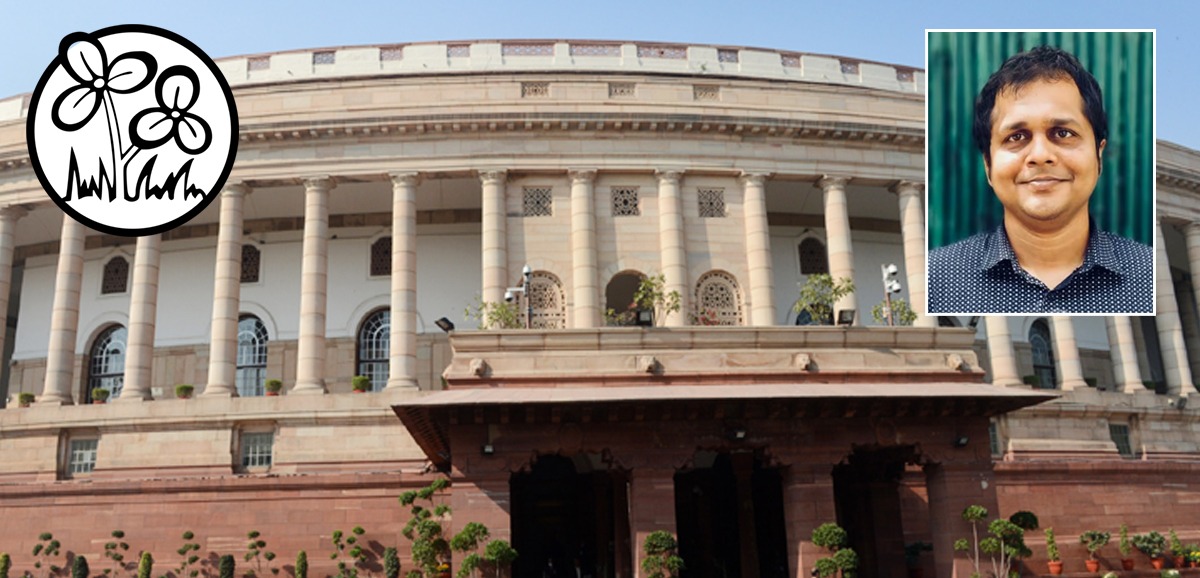
Sir, I have a point of order. Sir, my point of order is under Rule 267. I had given notice under Rule 267 for demanding a discussion on the duplicate EPIC voter cards. The notice is still alive, Sir, but it has not been read out. I would request your ruling on it, Sir. Thank you, Sir.
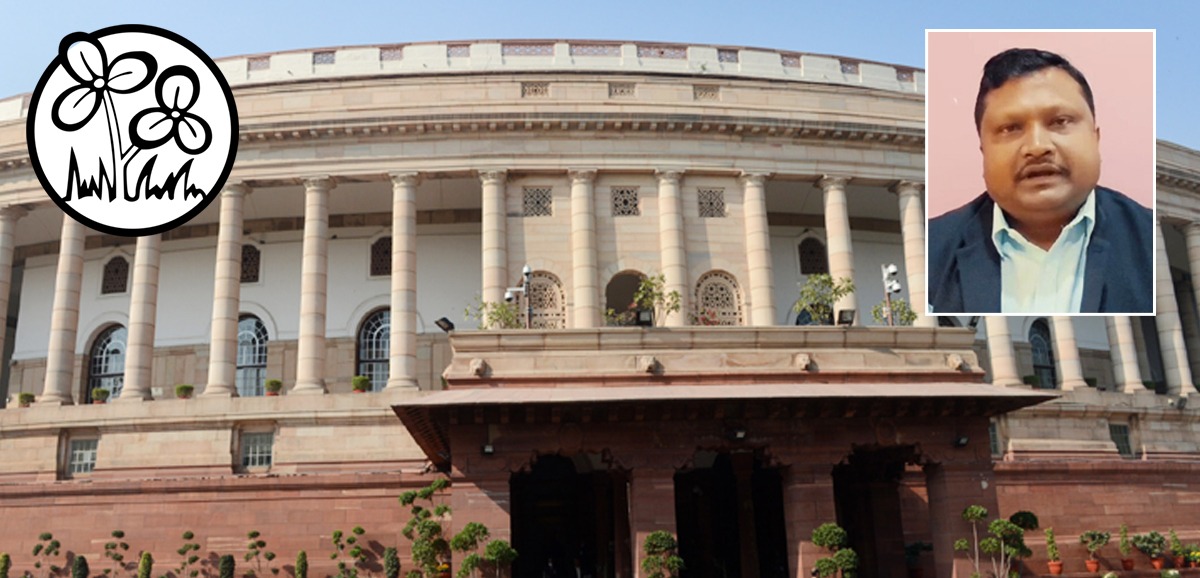
उपसभाध्यक्ष महोदया, आपका बहुत- बहुत धन्यवाद। मैं आज the Protection of Interests in Aircraft Objects Bill, 2025 पर अपनी बात रखने के लिए अपनी पार्टी ऑल इंडिया तृणमूल कांग्रेस की ओर से खड़ा हुआ हूं। मैडम, मैं ‘वायुयान वस्तुओं में हित संरक्षण विधेयक 2025’ की कमियों को उजागर करना चाहता हूं। इस विधेयक को लाने में बहुत देरी हुई है, इसकी अधूरी रूपरेखा एक गंभीर चिंता पैदा करती है। सरकार को स्पष्ट करना चाहिए कि इस कानून को लाने में इतना समय क्यों लगा। यह सच है कि एयरलाइंस लीजर्स, निवेशक एवं यात्रियों को चुनौतियों का सामना करना पड़ता था। वर्षों से विदेशी लीजर्स, फाइनेंसर्स को भारत की कानूनी अधिसूचना का भी सामना करना पड़ा है। 2023 में एयरलाइंस के दिवालियापन मामले ने इस समस्या को उजागर किया। राष्ट्रीय कंपनी कानून न्यायाधिकरण (एनसीएलटी) ने दिवालया एवं दिवालियापन के सहित आईबीसी के तहत रोक लगाई, जिसमें 50 से अधिक लीजर्स कंपनी अपने विमान को वापस लेने में असमर्थ रहीं। इससे निवेशक का विश्वास हिल गया है, जिससे भारत विमान लीजर्स के लिए उच्च जोखिम वाला बाजार बन गया है। इसके फलस्वरूप भारतीय एयरलाइंस को अपने विदेशी समकक्षों की तुलना में 10 से 15 प्रतिशत से अधिक लीजिंग शुल्क देना पड़ा। सरकार के पास इस समस्या को हल करने के लिए वर्षों का समय था, लेकिन सरकार ने विधेयक को आईबीसी के अनुरूप नहीं रखा। अन्य देशों ने केपटाउन कन्वेंशन अपनाकर विमान पूर्ण प्राप्ति की प्रक्रिया तेज कर दी, लेकिन भारत में ऐसा कोई तत्काल प्रावधान मौजद नहीं है। मैडम, इस बिल की चर्चा के लिए आज फ्राइडे के दिन हम लोग सरकार के साथ पूरे सहयोग से खड़े हैं। मैडम, बस हम यही चाहते हैं कि सरकार भी हम लोगों की सहायता करे और EPIC वोटर कार्ड के मुद्दे पर जल्द से जल्द सदन में चर्चा हो। इस विधेयक को जिस तरह से पेश किया गया है, यह चिंता का विषय है। 17वीं लोक सभा में केवल 10 में से एक विधेयक को गहन समीक्षा के लिए भेजा गया और एक तिहाई को 60 मिनट से भी पहले पारित किया गया, यानी उनमें किसी प्रकार की चर्चा नहीं हुई। इस विधेयक को संविधान स्टैंडिंग कमेटी में भेजा जाना चाहिए, ताकि इसकी गहन समीक्षा हो सके। यदि सरकार वास्तविक तौर पर एविएशन सुधार पर गंभीर चिंता करती है, तो उसे उचित तौर पर समीक्षा की अनुमति देनी चाहिए। भारत का एविएशन सेक्टर गंभीर संकट से गुजर रहा है। साल 2024 में एयरलाइंस को 2,000 से लेकर 3,000 करोड़ का नुकसान हुआ। बढ़ते ईंधन मूल्य, कई बाधाएं, प्रबंधों की कमजोरियां एवं आपूर्ति श्रृंखला की रुकावट एयरलाइंस को वित्तीय संकट की ओर धकेल रहे हैं। इसका सबसे अधिक असर यात्रियों पर पड़ रहा है। खासकर पीक सीजन में हवाई किराया आसमान छू रहा है। हाल ही में महाकुम्भ में हवाई यात्रा का किराया दोगुना से तिगुना तक बढ़ गया था और एक-एक टिकट के लिए 50,000 से भी ज्यादा देना पड़ा था। फिर भी सरकार निगरानी करने का दावा करती है। टिकट की कीमतों पर नियंत्रण करने के लिए किसी भी प्रकार का नियम नहीं है। निजीकरण की स्थिति इतनी बिगड़ गई है कि त्रिवेंद्रम हवाई अड्डे पर यूडीएफ शुल्क 506 रुपये से बढ़कर 770 हो गया। इस पर भी सरकार ने कोई भी कदम नहीं उठाया। सरकार हवाई यात्रा को सुलभ बनाने के बजाय महंगा बना रही है। भारतीय एविएशन इंफ्रास्ट्रक्चर अपेक्षाकृत असुरक्षित है। 2023 में यात्रियों की संख्या में 39 प्रतिशत की वृद्धि हुई है, लेकिन एयरपोर्ट मैनेजमेंट बजट 12 प्रतिशत से घटकर 8.5 प्रतिशत हो गया। 2019 से 2024 के बीच में 11 बार एयरपोर्ट स्ट्रक्चर गिरने एवं 10 बार वर्षा से जल रिसाव की घटना सामने आई है। सरकार जब हवाई यात्रा के विस्तार के दावे कर रही है, तो ‘उड़ान योजना’ के अंतर्गत केवल आधे मार्ग क्यों हैं? तीन वर्षों के भीतर 114 मार्गों को बंद किया गया। देश भर के प्रमुख हवाई अड्डों पर 164 विमान परिचालन बाधाओं के कारण जमीन पर खड़े हैं। यदि इनका उपयोग होता है, तो हवाई किराया कम होगा एवं कनेक्टिविटी बेहतर होगी। पायलट की सुरक्षा – पायलट की सुरक्षा एक महत्वपूर्ण मुद्दा है। 2023 में दो भारतीय पायलटों की अत्यधिक कार्यभार एवं थकान के कारण मृत्यु हो गई। इस दुखद घटना के बावजूद कार्य समय पर करने के लिए कोई आवश्यक नए कदम एवं नियम नहीं बनाए गए। थकान संबंधित घटनाएं लगातार बढ़ती जा रही हैं। जब तक सख्त नियम लागू नहीं किए जाएंगे, तब तक पायलट एवं यात्री दोनों असुरक्षित रहेंगे। सरकार को किसी भी डिजास्टर से पहले आवश्यक कदम उठाना चाहिए। एविएशन केवल एयरलाइंस से नहीं, बल्कि सम्पर्क, रोजगार, पर्यटन, आर्थिक विकास से जुड़ा हुआ है। यदि इस समस्या का समाधान अभी नहीं किया गया, तो भारत एविएशन हब बनने का अवसर खो देगा। सरकार को बातें करने के बजाय ठोस कदम उठाने चाहिए। भारत को एक ऐसा एविएशन उद्योग चाहिए, जो सुरक्षित, किफायती एवं सुचारू हो और जिसमें प्रतिस्पर्धा हो। हम सरकार से कहना चाहते हैं कि वेस्ट बंगाल के साथ भेदभाव नहीं कीजिए। Civil Aviation Minister यहाँ उपस्थित हैं। मैं केन्द्र सरकार के माननीय मंत्री से कहना चाहता हूँ कि जल्द से जल्द कोलकाता से लंदन की flight के माध्यम से direct connectivity कराइए और हवाई सेवा को शुरू कराइए। धन्यवाद।